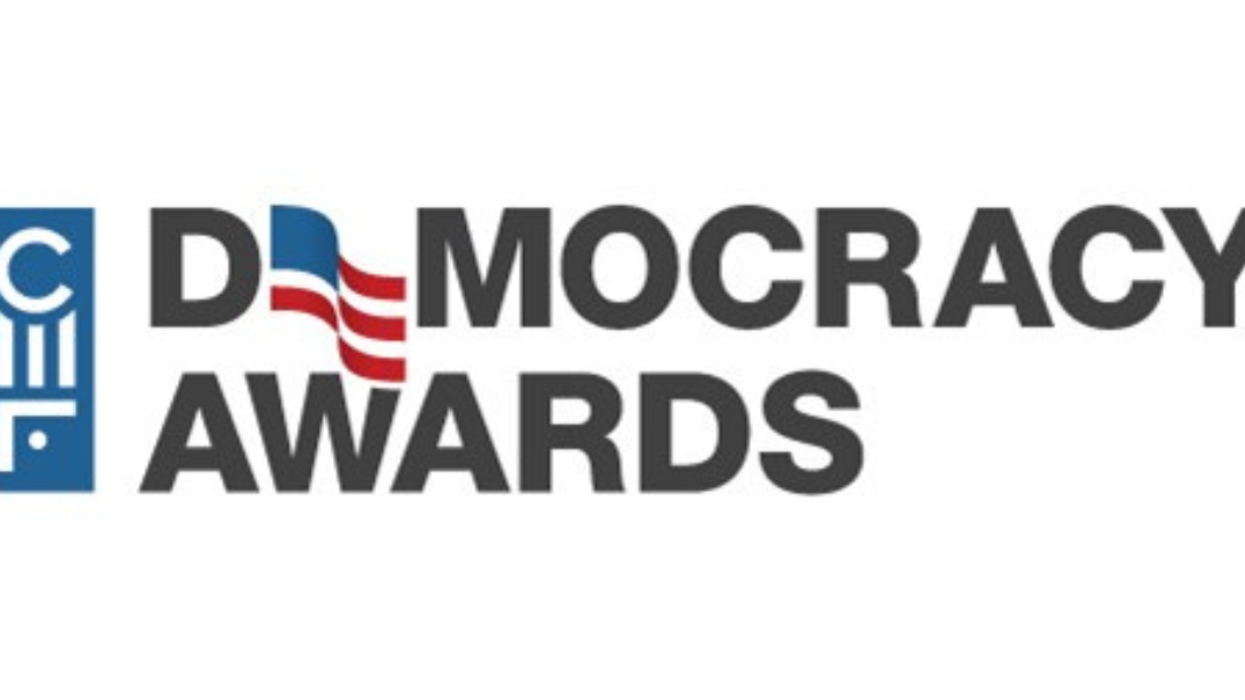The Congressional Management Foundation (CMF) announced the finalists for the sixth annual Democracy Awards, CMF’s program recognizing non-legislative achievement and performance in congressional offices and by Members of Congress.
“Americans usually only hear about Congress when something goes wrong. The Democracy Awards shines a light on Congress when it does something right,” said Bradford Fitch, CMF’s President and CEO. “These Members of Congress and their staff deserve recognition for their work to improve accountability in government, modernize their work environments and serve their constituents.”
The 2023 Democracy Awards finalists announced on May 16, 2023 by category are:
Constituent Service
Rep. John Curtis (R-UT) – who created a “Business Crawl” listening tour to visit and support local businesses during pandemic shutdowns; conducted opioid roundtables; facilitated the Rural Business Summit; and convened an annual Conservative Climate Summit.
Rep. Dusty Johnson (R-SD) – who conducts town halls with constituents, both in-person and virtually, including "Drive-Thru Dusty Town Halls,” with the congressman addressing constituents on the back of a pick-up truck, answering constituent questions as a safe alternative to meet with constituents during the COVID-19 pandemic.
Sen. Jeanne Shaheen (D-NH) – who established a casework metrics system that are shared in a memo each week with office staff and the senator. Since 2009 35 percent of case opened are constituents who contacted the office multiple times for assistance.
Rep. Lauren Underwood (D-IL) – who in less than four years in office has closed nearly 5,000 constituent cases, recovered millions of dollars on behalf of constituents, and hosted almost 20 virtual workshops on a variety of topics for solving problems in working with executive branch agencies.
“Life in Congress” Workplace Environment
Rep. Tim Burchett (R-TN) – who, among other novel practices, limits his after-hours calls and emails to staff to only the most time sensitive matters.
Rep. Ro Khanna (D-CA) – who created a robust time-off policy. Staff receive 30 days of total paid leave per year - 15 days of vacation + 15 days of sick leave which can be used for Mental Health Days at any point during the year, in addition to 1-2 weeks of office closure in the last 2 weeks of December.
Rep. Barry Moore (R-AL) – who, having been sworn in at the height of the pandemic in 2021, created a telework policy that empowers staff to coordinate schedules so that the office remains staffed, and every staffer can periodically work from home. The office also immediately provided lightweight laptops, iPads and iPhones, so every staffer can easily continue working outside of the office, whether from home or other locations.
Rep. Ayanna Pressley (D-MA) – whose office rewrites manuals and documents and revisits goals often. They created a continuity of operations plan at the beginning of the pandemic and update it quarterly. The office conducts staff retreats both virtually and in-person, and does performance reviews annually, as well as weekly check-ins between managers and their staff.”
Constituent Accountability and Accessibility
Rep. Sean Casten (D-IL) – who regularly holds in-person and telephone town hall meetings on general issues and specific topics including: the Senate filibuster, inflation, gun reform, infrastructure funding in Illinois, and a meeting on his decision to vote in favor of impeaching President Trump.
Rep. John Curtis (R-UT) – who has held more than 300 constituent service or town hall-style events since coming to Congress in 2017.
Rep. Mark DeSaulnier (D-CA) – who instituted a policy of never leaving a town hall meeting until the last constituent attending has had an opportunity to ask a question.
Rep. Barry Moore (R-AL) – who holds regular themed small meetings with constituents over meals, naming them "Breakfast with Barry," "Burgers with Barry," and "Buffet with Barry."
Methodology:
CMF created a detailed process to identify and recognize the best congressional offices. House and Senate personal offices self-nominated in late 2022/early 2023 using an online questionnaire. In early 2023, CMF followed up with offices to conduct interviews and assess the office's adherence to the established criteria using a detailed checklist to determine a list of nominees that would advance to the Selection Committee phase of the process.
In July, a Selection Committee comprised primarily of former Members of Congress and former congressional staffers will select two winners (one Democrat and one Republican) for each category using the nomination forms, interview notes, and supporting material provided by the office.
Details on the finalists’ accomplishments can be found here. Winners for the staff and Member Lifetime Achievement Democracy Award will be announced at a later date.
The Founding Partner for the Democracy Awards is the Bridge Alliance, which provided a generous grant to launch the program. Bridge Alliance is a diverse coalition of more than 100 organizations committed to revitalizing democratic practice in America.
The Congressional Management Foundation (CMF) is a 501(c)(3) nonpartisan nonprofit founded in 1977 dedicated to strengthening Congress and building trust in its work with and for the American people. CMF works to revitalize Congress as an institution; promotes best practices in congressional offices; and helps Congress and the people they represent engage in a constructive and inclusive dialogue toward a thriving American democracy.




















Trump & Hegseth gave Mark Kelly a huge 2028 gift